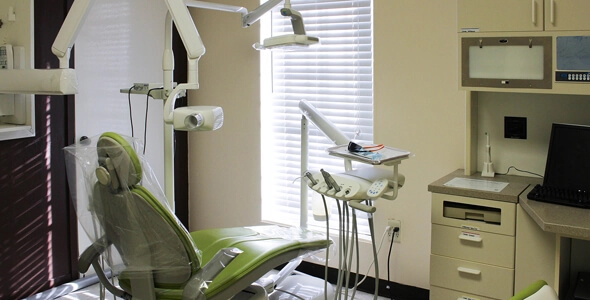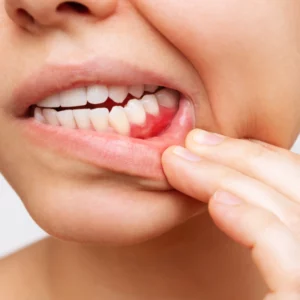Tooth sensitivity is an increasing dental condition that causes irritation or pain in the tooth when certain liquids and temperatures are experienced. As per the Academy of General Dentistry, at least 40 million American adults suffer from Tooth sensitivity is an increasing dental condition that causes irritation or pain in the tooth when certain liquids and temperatures are experienced. As per the Academy of General Dentistry, at least 40 million American adults suffer from sensitive teeth.m sensitive teeth.
The pain can be intense and unexpected, but it’s short term. The pain can begin in the nerve endings of the teeth. However, sensitive teeth can be addressed, and the issue may change for the better. The following causes can trigger tooth sensitivity.
You Grind Your Teeth Excessively.
Although dental enamel is the toughest element in your body, grinding your teeth may lead to risking and damaging your enamel. And thereby, you risk exposing the dentin, or the middle part of the tooth that includes hollow tubes leading to the nerves. Speak to your dental professional regarding getting a mouth guard to prevent you from grinding too much. The finest guards are specially made to fit your bite.
The Sensitivity Of Teeth Post Filling
Many people can feel tooth sensitivity after the cavity has been filled, or the filling has been removed. The tooth decay that triggers cavities can cause discomfort to the tooth, as well as the filling process, can, if possible, contribute to more sensitivity. Thankfully, the sensitivity of the tooth after filling must get better on its own within several weeks. It could last longer, sometimes even months, but as long as the tooth’s hypersensitivity clearly shows a steady strengthening, there ought to be nothing that should cause you any worry. Prolonged tooth sensitivity, nevertheless, could signify the need for a root canal.
You Vigorously Brush Your Teeth.
Often the sensitivity of the tooth arises from brushing forcibly using a hard-bristled toothbrush. With time, you can damage your teeth’ natural protective coating and risk exposing the microscopic hollow tubes or canals that ultimately damage your dental nerves. Due to exposure to high temperatures or even to acidified or rubbery food items, tooth sensitivity and irritation can occur. The best approach is to shift to a toothbrush with gentle bristles and not be too harsh when brushing your teeth.
You Use Too Much Mouthwash
Like tooth-whitening paste, several other pharmaceutical types of mouthwash and rinses include alcohol as well as other chemical products that really can end up making your teeth more sensitive — especially if it is the case of exposed dentin. Alternatively, consider start using neutral fluoride mouthwashes or skip the rinse and be much more proactive about oral hygiene and flossing.
Decay and Dental ruptures
Cracks or defects between your teeth risk exposing your teeth’ sensitive areas, like your nerves, to the possibility of excruciating pain in your mouth. Cracking or tearing can be triggered by a mixture of things, especially some kind of oral pain. Sportspeople appear to encounter a higher risk of oral damage, especially with high-contact sports like rugby, basketball, boxing, wrestling, etc. And even the easiest of factors can give rise to a chip or a tooth rupture. In simple terms, consuming hard candy or biting on a bone seems to be a usual way of causing adverse side effects to the teeth. Dental decay will dramatically increase the potential risks of chipping or tearing as it erodes the tooth’s surface.
High-acidic diet
The sensitivity and discomfort in your teeth could also occur due to the consumption of extremely acidic food. As you know, the tooth enamel with the strong protective layer of your teeth gets damaged with age. Not just sensitivity, several dental issues unveil when there is an intake of a high acidic diet. Tooth enamel that is technically worn out can get extremely susceptible to sensitivity due to everyday food items like tomato ketchup, vinegar, fruit juices, etc.
If the case is so sensitive, then do not forget to visit your dentist twice a year. This would ensure safety and optimal oral hygiene. You could also try oral hygiene products that would boost your enamel longevity. If things persist, consult a dietician to bring alterations to your diet and reduce the food items leading to your teeth’ hypersensitivity.
Gum Diseases
Periodontitis and Gingivitis are inflammatory factors that target the supporting tissues of the teeth. Bad oral health habits can contribute to plaque build-up. Certain Bacterial species may cause a lot of issues, such as gum disease. While the bacteria erode gum tissue, this could induce a gingival recession that exposes areas of the tooth that perhaps should be guarded.
The very first step to address tooth sensitivity linked to gum disease is to cure gum disease. Your orthodontist will certainly suggest a special cleanup called scaling and root planning to remove built-in plaque and bacteria. After that has been completed, improved oral health methods must be implemented to avoid repetition. Based on the intensity of the recession, a muscle tissue grafting (gingival grafting) may be required to replace damaged gum tissue with good donor tissue from some other portion of the mouth. It is an appropriate treatment, although it can be a bit costly.
Conclusion
The sensitivity of the tooth is curable. You could also find that the use of specially manufactured toothpaste for sensitive teeth aims to help. These formulations, nevertheless, not everyone can reap its benefits.
If your discomfort is severe and lasts no matter what action you take, make sure to consult with your dentist for an examination. Just a visit to the clinic can assess the cause of your tooth sensitivity and the best approach to your specific case.











